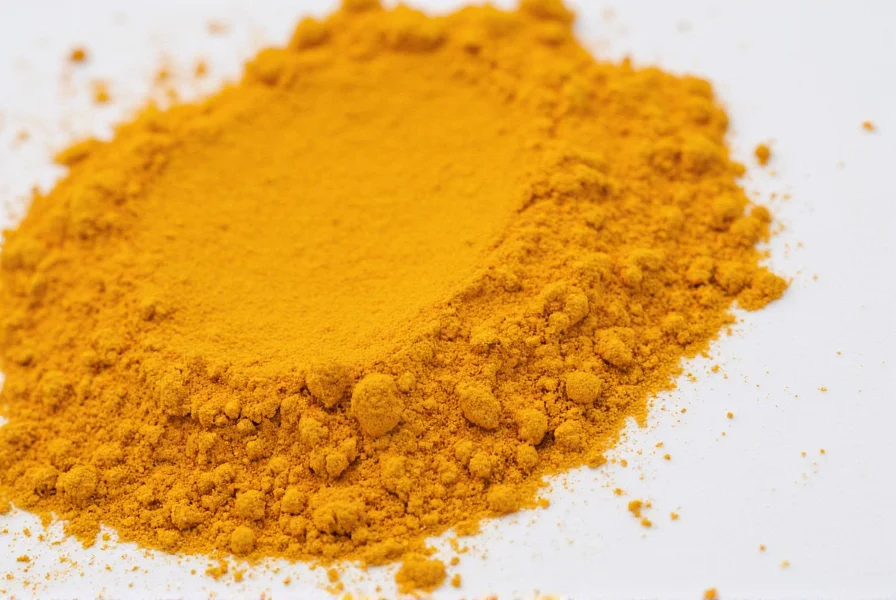Many natural health enthusiasts promote turmeric as a teeth-whitening solution, but this claim contradicts both dental science and the basic properties of the spice itself. Turmeric contains curcumin, a compound responsible for its vibrant yellow color that readily binds to surfaces—including your tooth enamel.
The Turmeric Teeth Whitening Myth
The misconception that turmeric whitens teeth likely stems from its anti-inflammatory and antimicrobial properties. Some preliminary studies suggest turmeric mouthwash might help reduce plaque and gingivitis. However, these oral health benefits are completely separate from teeth whitening.
When people use turmeric powder as a toothpaste alternative, they often notice temporary brightness after rinsing. This isn't actual whitening—it's simply the contrast effect of removing surface debris against the yellow spice residue. Once the turmeric stains set in, teeth appear more yellow than before.

What Dental Research Says
A 2020 review published in the Journal of Indian Society of Periodontology examined turmeric's effects on oral health. While confirming turmeric's potential benefits for gum inflammation, researchers explicitly noted: "Turmeric does not possess bleaching properties and may cause extrinsic tooth staining due to its chromogenic nature."
Dental researchers at New York University conducted a study comparing various natural teeth-whitening methods. Their findings, presented at the American Dental Association conference, showed that "turmeric-based treatments resulted in measurable yellowing of tooth samples after just seven applications."
How Turmeric Affects Tooth Color
Turmeric contains powerful coloring compounds called curcuminoids that easily adhere to tooth enamel. This process, known as extrinsic staining, works similarly to how coffee, tea, or red wine discolor teeth—but with a distinctive yellow hue.
| Natural Remedy | Whitening Effect | Staining Risk | Dental Professional Recommendation |
|---|---|---|---|
| Turmeric | None | High (yellow) | Avoid for whitening |
| Baking soda | Mild (abrasive) | Medium (enamel wear) | Limited use |
| Hydrogen peroxide | Significant | Low (when properly diluted) | Professional supervision |
| Activated charcoal | Temporary | High (abrasive) | Not recommended |
The American Dental Association warns that "natural" doesn't always mean safe or effective for dental care. Their position states: "There is no scientific evidence supporting turmeric as a teeth-whitening agent, and its staining properties make it counterproductive for this purpose."
Potential Risks of Using Turmeric on Teeth
Beyond the staining issue, regular use of turmeric as a toothpaste alternative carries other risks:
- Enamel abrasion - When mixed with abrasive ingredients like baking soda
- Gum irritation - From undiluted turmeric powder
- Interference with dental work - May stain crowns, veneers, or fillings
- Temporary discoloration - Can make professional whitening treatments less effective
Evidence-Based Teeth Whitening Alternatives
If you're seeking natural-looking results without damaging your teeth, dental professionals recommend these evidence-based approaches:
- Maintain excellent oral hygiene - Brush twice daily with fluoride toothpaste and floss regularly to prevent new stains
- Limit stain-causing foods and beverages - Reduce consumption of coffee, tea, red wine, and dark berries
- Rinse after meals - Water rinses help remove staining compounds before they set
- Consider ADA-approved whitening products - Look for the ADA Seal of Acceptance
- Professional dental cleaning - Removes surface stains that home care can't address
When to Consult a Dental Professional
If you're concerned about tooth discoloration, schedule a consultation with your dentist. They can determine whether your stains are extrinsic (surface-level) or intrinsic (within the tooth structure), which affects treatment options. For significant discoloration, professional whitening treatments under dental supervision remain the most effective and safest approach.
Remember that perfectly white teeth aren't necessarily healthier teeth. The natural tooth color varies among individuals and tends to darken slightly with age—this is normal. Focus on oral health rather than achieving an unnaturally bright shade.
Conclusion
Despite popular claims circulating online, turmeric does not whiten teeth and may actually cause yellow staining. While turmeric offers potential benefits for gum health when used appropriately in mouth rinses, it should not be used as a teeth-whitening agent. For safe and effective whitening, consult your dental professional about evidence-based options that won't compromise your oral health.
Can turmeric remove teeth stains?
No, turmeric cannot remove teeth stains. Its strong yellow pigment actually binds to tooth enamel and may cause additional yellow staining rather than removing existing discoloration. Dental studies show turmeric-based treatments result in measurable yellowing of tooth samples after repeated use.
Does turmeric toothpaste work for whitening?
Turmeric toothpaste does not work for whitening teeth. While some users report temporary brightness after use, this is simply the contrast effect of cleaning debris against the yellow residue. Once rinsed, the turmeric's pigments remain and cause yellow staining. The American Dental Association confirms there's no evidence supporting turmeric as a whitening agent.
How long does it take for turmeric to stain teeth?
Visible yellow staining from turmeric can occur after just a few uses. NYU dental researchers found measurable yellowing in tooth samples after seven applications of turmeric-based treatments. The staining compounds in turmeric (curcuminoids) bind strongly to tooth enamel, making the discoloration difficult to remove with regular brushing.
Is turmeric safe for gums but bad for tooth color?
Yes, this is accurate. Turmeric has anti-inflammatory properties that may benefit gum health when used in properly diluted mouth rinses. However, these same properties that help gums make turmeric problematic for tooth color. The same compounds that provide health benefits readily stain surfaces, including tooth enamel. Dental professionals often recommend turmeric mouth rinses while advising against using it directly on teeth for whitening.
What natural methods actually whiten teeth?
The most effective natural approach to maintaining white teeth is prevention through excellent oral hygiene. Brush twice daily with fluoride toothpaste, floss regularly, and rinse with water after consuming stain-causing foods and beverages. While baking soda has mild abrasive properties that may help remove surface stains, it should be used sparingly to avoid enamel damage. For significant whitening, professional treatments under dental supervision remain the safest and most effective option.










 浙公网安备
33010002000092号
浙公网安备
33010002000092号 浙B2-20120091-4
浙B2-20120091-4